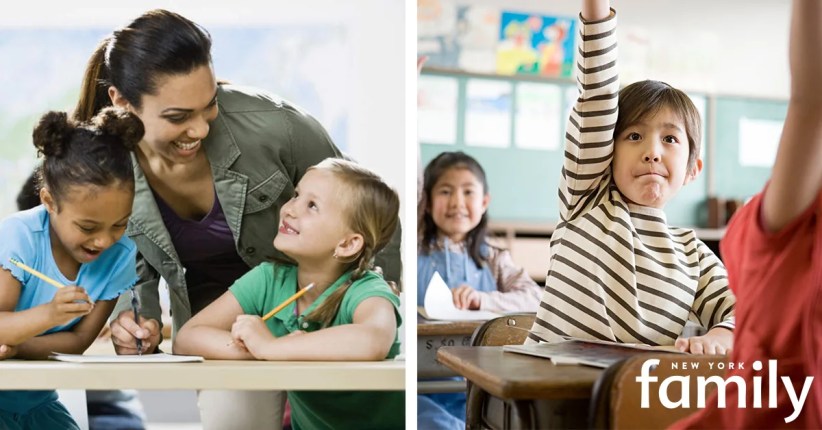
Visting Day at Summer Camp!
From the moment your child steps on the camp bus this June, you will most likely be awaiting Visiting Day, the chance to see your child at camp and get a taste of the wonderful summer they’ve been having. While Visiting Day is a special day for both camper and parent, it’s also a highly anticipated day that everyone wants to be great. Check out these nine tips from seasoned camp directors to help you and your child have the most successful visiting day possible.
For more summer camp tips for parents, read about Sleepaway Camps for Kids: What Parents Need to Know
Read the Emails from Camp
Camps are very good about preparing parents for what to expect on Visiting Day. “Take the time to read what your camp sends out,” says Matt Brown, Owner & Director of Camp Wayne for Girls, a girls overnight camp in Wayne County, Pennsylvania. “Preparing ahead and knowing what to expect will set you up for a positive day with your child.” Laurie Rinke, Owner and Director of Camp Echo Lake, a coed overnight camp in the Adirondacks adds, “Parents are certainly the experts on their kids, but camp directors are experts on their camp. If they take the time to provide logistical information on Visiting Day with emotional tips, it’s coming from a place of experience and wanting it to be the best possible experience for parents and children.”
Give Consideration to Who You Bring
“Visiting day is about being with your child and having a special day with them,” explains Brown. “When considering bringing people with you, keep in mind that a toddler or grandparent might not be able to handle the long day, the heat or the walking around camp. Make sure you give thought to the entire experience including weather, travel and walking. If you feel that any of this might be too much for a visitor and detract from the day, you might want to reconsider who you bring.” Rinke recommends parents limit the people visiting to just the parents and siblings for a child’s first summer. “Goodbyes can be harder year one and you don’t know what kind of reaction your child will have at the end of Visiting Day. The more people there are, the more goodbyes and separation that have to happen.”
Bunk Gifts
If your camp has a no bunk gift policy, respect it. Brown says, “Bunk gifts can create competition and bad feelings even if unintentional. Visiting Day is about visiting with your child and your presence alone should be enough.”
Food
Keep in mind that most camps have a limited amount of time they allow campers to keep food brought on Visiting Day. Rinke explains, “We welcome parents bringing their child’s favorite treats to enjoy on Visiting Day but we ask that parents avoid bringing treats in excess. Campers are only permitted to enjoy their treats for a short time after parents leave so bringing more food than can be consumed during the day becomes wasteful.”
Be on Time
Do your best to be on time. “Your child has been anticipating Visiting Day for days. It can be devastating for a child if all the other parents are there and theirs isn’t,” says Brown.
Let Your Child Lead the Day
“Camp is one of the few things in a young person’s life that is uniquely their own and that they have ownership of. Allow your child to lead the day by showing and telling you what they want to share. Make sure to show excitement and match their enthusiasm in what you are seeing. Participate in the planned activities the camp offers and make sure to make the day all about them,” says Brown.
Recognize Visiting Day Can Be Emotional
“Visiting Day is a fun and special day for the entire family. It can also be an intensely emotional day for both campers and parents,” says Rinke. “On one hand, you get to spend time with your children and on the other hand, all of you may also be anticipating a sad goodbye at day’s end. If your child becomes overly emotional, or even mentions the idea of wanting to go home with you at the end of the day, they need to borrow your confidence to re-affirm that they can do this.”
Try Not to Talk Too Much About Home
Talking about home can bring up feelings of homesickness. “Before your arrival, campers have adjusted to camp and are having the best time but then parents come and you of course remind them of home,” says Brown. “Try not to talk too much about home by talking about Rover the Dog or all the fun things you are doing without them. Focus on camp and all the positive things they have accomplished at camp so far and the good times that still remains.”
Saying Goodbye
The end of the day can be very hard for campers,” says Rinke. “Make sure your goodbye at the end of the day is meaningful but quick. The longer you stay, the harder it is to separate. Remember that once you say goodbye, the camp has tons of strategies and plans to get your child back into the fun of camp.”





















